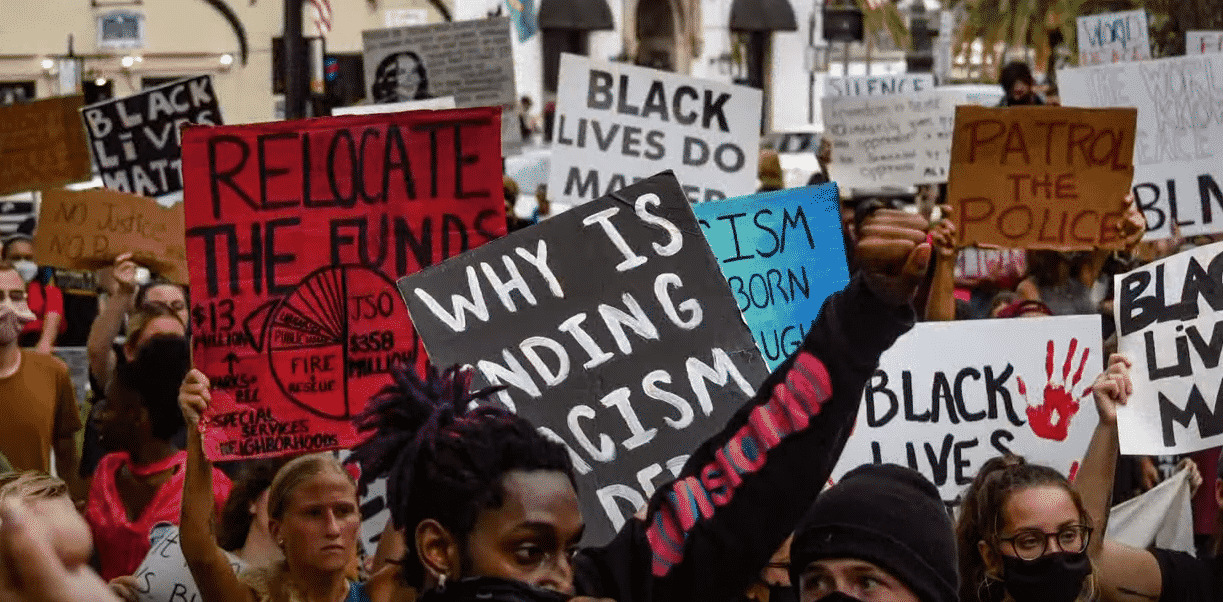My university’s writing center revamped their training to include a unit on “systemic oppression.”
By Jonathan Swift
To help prepare us to teach a class, one of my instructors told me and several others to read a newly posted article, “The Politics of Academic Language: Towards a Framework for Analyzing Language Representations in FYC [First Year Composition, a.k.a. English 100/101] Textbooks.” In it, Alisa LaDean Russell argues that “composition studies’ professional artifacts and pedagogical materials can perpetuate tacit ideologies about academic language that are in conflict with our field’s larger goals toward social justice and inclusion.” My mentor called it ‘amazing’, and clearly meant to guide us in choosing textbooks so that our students would not suffer from exposure to tacit ideology.
Russell grants herself the permission to make blanket statements such as, “our field’s larger goals toward social justice and inclusion in FYC.” She further argues that the use of coherent English is the exercise of privilege, which may explain the first quote. Yet clarity should be the goal of a composition course titled English 101. Russell also displays the ‘progressive’ obsession with racial identity: “Because academic language as a hegemonic discourse organizes white, northern, middle-and upper-class varieties above others, it is ultimately linked to whiteness.”
How academic language prioritizes white, northern, middle-and upper-class varieties of English, why this prioritization isn’t desirable, and why “whiteness” —undefined in the article itself— should be avoided is not specified. The author assumes the reader knows or infers from the article’s tone that it’s something to be held in contempt. Never mind that English is the third most-spoken language worldwide, with approximately 360-million-plus native speakers and around 500 million who speak it as a second language.
Russell not only misses the point of these textbooks, but the field itself. If the purpose of writing is to communicate ideas, emotions, preference, or other sentiments clearly, then anything which aids the writer in being understood is useful. Without the ability to communicate, we become even more fragmented and more inclined to see each other as strangers.
She commits the same mistake as countless other think-pieces, Tweets and tirades: they use the groups they purport to champion as ammunition, while wrapping themselves in a layer of shallow good intentions. The allegedly victimized groups are fodder for a crusade, one minority interchangeable with another. To proclaim absolutes such as, “this entire institution and others like it [are] openly hostile to everyone in a specific group,” does a disservice to the institution and the alleged victims. It implies the rot is so deep and so widespread that it cannot be addressed, as well as that the group said to be oppressed is too frail, too crippled, to succeed.
My university’s writing center revamped their training to include a unit on “systemic oppression.” After slogging through condescending, muddled and over-long tirades on how everything surrounding them is solely designed to grind minorities into a fine powder, teachers-to-be are asked to respond to the readings before moving on to the next lesson. This is a trick, as only certain kinds of response are acceptable. To question the lesson results in a face-to-face conversation with just the right tinge of concern to correct the wayward apprentice. The Politburo would be proud. The unit, designed by a ‘diverse’ staff of three upper-middle-class women who have only worked in academia, is dishonest and destructive. It presents opinion as fact and tells the incoming tutors to believe in a fundamentally mean world and hate the university they should support willingly, if not with some measure of pride.
Defenders of this ideology are possessed of a contradictory self-loathing, hating the institutions, the nation, and their colleagues, even as they reap the benefits of each. Every proclamation is shot through with contempt for their surroundings, their peers, and ultimately themselves. By its very nature it encourages fragility, pearl-clutching outrage, and an overall air of indignation.
People such as Russell tiptoe on eggshells, chiding and shushing others, claiming to be protectors of an individual or group that may not know or concerned about the alleged slight. They are eternally vigilant for failings, ready to find fault in others while willfully ignoring their own, spurred into rage by the whiff of any opinion they find objectionable. To them, someone who says “Hey, I feel bad for those falsely accused of rape,” is the same as someone who calls for genocide. There’s no sense of scale or nuance.
One only has to look at the cycle of public shaming which is played out ad nauseam: Someone —or a group of someone’s— with at least a modicum of fame says or does something labeled offensive. The person is then swarmed with angry Tweets, screamed at outside his or her home, or has their employer pressured to fire the person. Said offender caves and apologizes, but this is always found to be insufficient by the mob. To them, the gaffe was honest and deliberate, the apology duplicitous. The cries for blood, for perpetual reprimand that will stymie the alleged oppressor at every turn until nothing is left of the person’s career. To the mob there are no unacceptable tactics, as the grand end —even if they cannot articulate what that is— justifies any and all means. Robespierre, the Bolsheviks, and the Khmer Rouge thought the same.
In advocating for permanent victimhood, the progressive mobs also advocate for an arrested development: a permanent immaturity where one is never responsible for one’s own opinions, actions, or fate. The masses cannot be trusted to decide for themselves; instead, they must be saved.
Perhaps Michel de Montaigne put it best: “I gladly come back to the theme of the absurdity of our education: its end has not been to make us good and wise but learned.” These academic wokescolds think themselves virtuous and wise when they are neither, nor do they support learning. Instead, they’re censorious, destructive zealots.
Jonathan Swift is a recovering academic who is using a pseudonym for obvious reasons.







